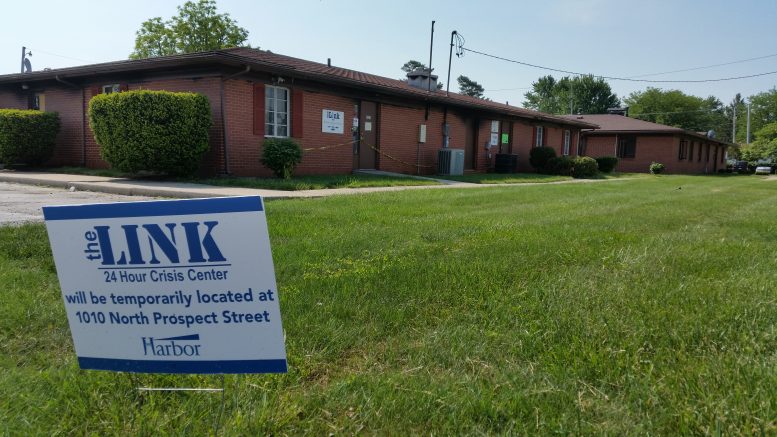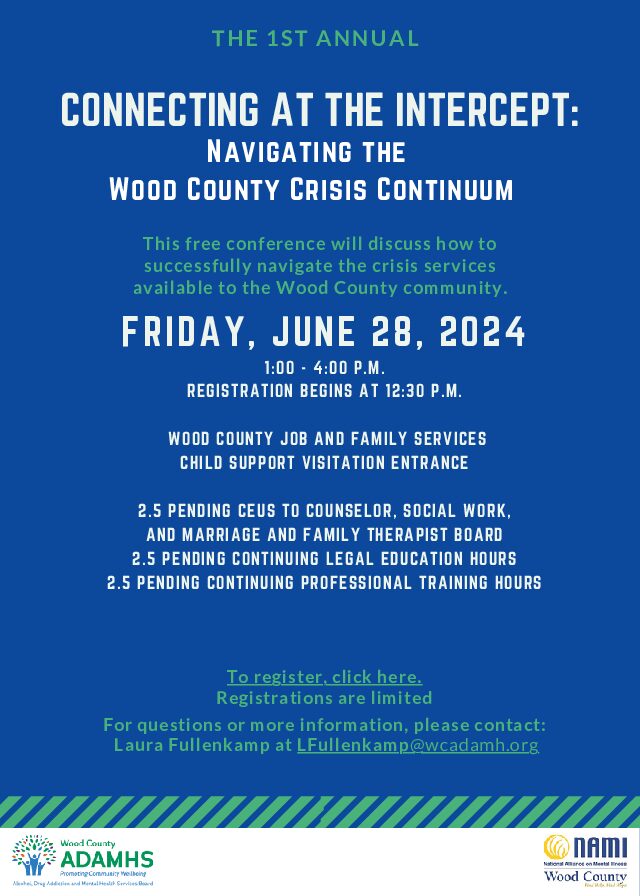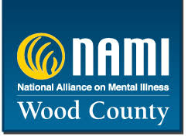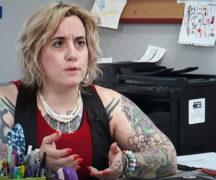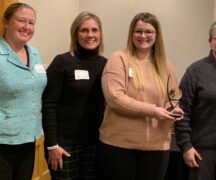By JAN LARSON McLAUGHLIN
BG Independent News
The Link saved Melissa Kaiser’s life. So when she learned the crisis intervention center was being closed, she was furious.
Last year, Kaiser was contemplating suicide when she called The Link. She was terrified of being hospitalized, but was convinced to go by the caseworker on the other end of the line.
“They got me to a hospital and they saved my life,” Kaiser said.
This wasn’t the first time she had turned to The Link for help. As someone dealing with depression, anxiety, bipolar issues – at the same time as juggling work, college and clinical rotations – Kaiser has sought help there before.
“They are able to understand me. They taught me coping mechanisms,” she said. “They talk to me. They calm me down.”
The Link has been offering help 24/7 for about 40 years in Bowling Green. It started out as a crisis hotline staffed by volunteers.
So when Kaiser heard that the brick and mortar site was being closed and the services were going mobile, she was livid.
“I’ve called The Link several times. They’re not just crisis prevention, they are caseworkers. They listen and then they hook you up with services,” she said of the staff who are friendly, familiar faces. “It was really upsetting to me. Those people saved my life.”
But those making the decision to switch over to a mobile crisis unit said the reason is for people like Kaiser. Stationary offices are an antiquated and more expensive way to provide crisis response, according to Tom Clemons, director of the Wood County Alcohol, Drug Addiction and Mental Health Services Board, and Chris Streidl, manager of clinical programs and quality improvement for ADAMHS.
“That service doesn’t go away,” but it will respond to wherever the caller is – rather than making them come to an office here in Bowling Green, Clemons said.
“We’re trying to bring our services to our clients,” Streidl said.
The mobile unit is seen as the most effective way to deal with the “silent epidemic in Wood County,” Clemons said. Current suicide rates in the county are higher than the national rate, and are more than the number of people being killed by opiate overdoses.
“This is not only a fiscal decision,” Clemons said. “We have to do something differently.”
The number of suicides reported in 2015 in the county was 17, followed by 20 in 2016. That number dipped in 2017 to 11, but is on track to hit 24 this year.
“These are the known suicides. There are always more,” Clemons said.
“It’s a huge issue. I don’t think people realize that,” Streidl said.
The mobile unit is believed to be more effective, Clemons said. “Mobile crisis response is the best practice – go where a person is.”
Very few people actually walk in to The Link for services, Streidl said. In the last fiscal year, about 800 came into the office, with most then being treated elsewhere. In the past year, the phone line logged about 13,000 calls, for all types of needs including information referrals.
Like The Link, the mobile unit will be available 24/7, but it would respond to wherever the caller is – home, work, a park, the library.
Staff at the mobile unit will have more training than those currently at The Link, who are licensed social workers or counselors, trained in First Aid, CPR and crisis intervention, Clemons and Streidl said. And unlike The Link, which has to put callers on hold if there are multiple calls at once, the mobile unit hotline will have the capacity to handle more than one person at a time.
“That’s unacceptable,” Clemons said of people in crisis being put on hold. “I would have recommended it even if it cost $240,000 more.”
But the fact is, the switch is saving money for ADAMHS. The current costs include $580,000 a year for Harbor which oversees The Link, plus $162,000 for Zepf Center to respond with a mobile unit when law enforcement is involved.
The new contract with Unison Health, which currently provides mobile response in Michigan, is $500,000.
But the savings of $240,000 a year is not the main issue, Clemons said.
“This is about saving lives. This is not about saving costs.”
Kaiser pointed out that The Link has a history of responding to all types of needs faced by local residents – whether it’s food, clothing or toiletries.
“People who go to The Link are poor,” she said. “The Link is a 24-hour United Way. They are open to everyone.”
And staff at The Link helps local residents get through until their next appointment with therapists, who are often booked far ahead, Kaiser said.
“There is just so much need in this community,” she said. “The Link really helps us get through till our next appointments.”
A brick and mortar location is important, Kaiser stressed.
“They are better than some random outsourcing because they are members of our community – they are familiar faces and familiar voices that are available in a time of crisis when you don’t know where to turn,” she said. “You need toothpaste in the middle of the night? Go to The Link. They’re still open. You can’t seem to afford food this week/month/year? Go to The Link. No questions asked. Just friendly, warm faces of the community ready to help your any and every need.”
Sending crisis response to homes may ignite rather than calm situations, Kaiser said.
“Crises start in the home,” she said. “We need this place to go to.”
Unison does have an office in Bowling Green, at 1084 S. Main St., Streidl pointed out.
“Change is very difficult,” even more so for people with emotional problems, Clemons said.
But this change is necessary to meet the needs, he said.
“So we can treat the crisis where it’s occurring,” whether that’s at home, in a park, or in a store, Clemons said.

